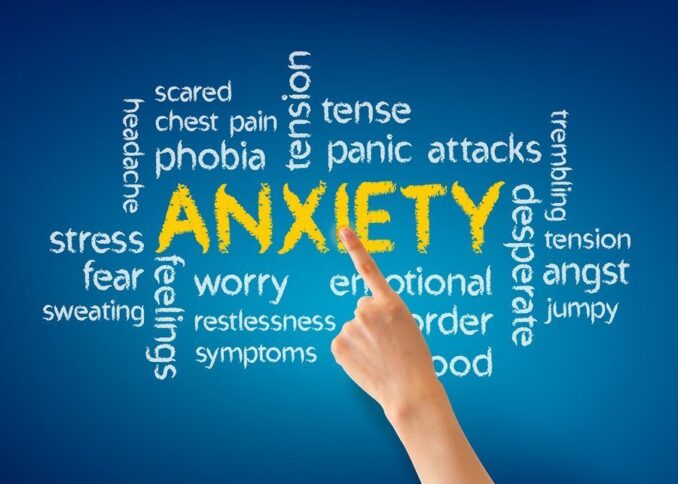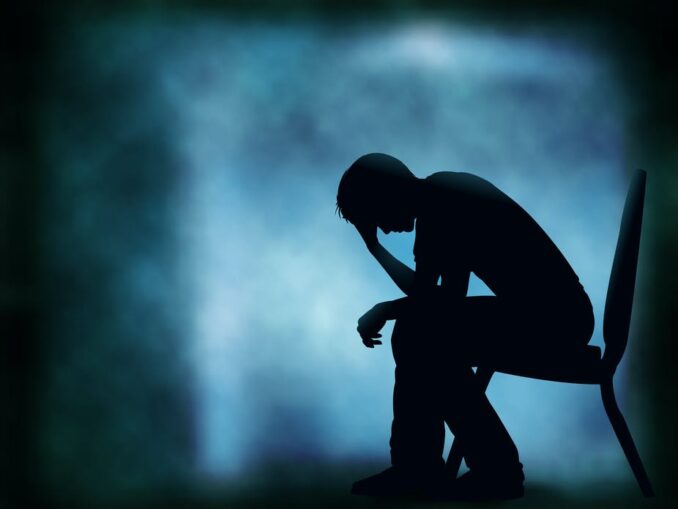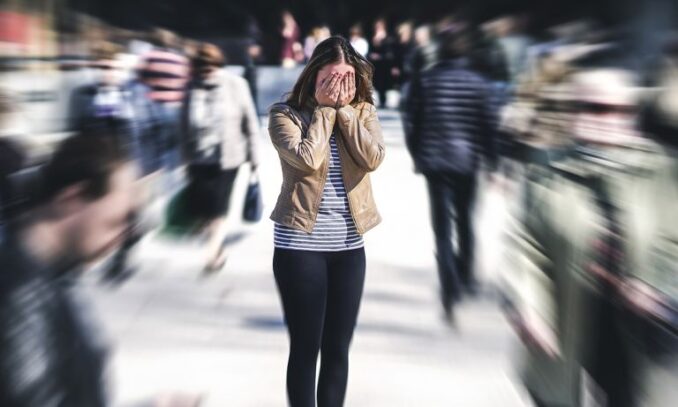The number of people experiencing anxiety and related disorders has risen. It can be categorized into different classes, but all somehow involve feeling anxious or scared. People with an anxiety disorder may feel like they are constantly on edge, and they may be worried about things that other people would not usually worry about. This type of disorder can make it difficult for someone to get on with their daily activities, impairing their function.
Physical Characteristics

Source:everydayhealth.com
The following is a brief description of the physical symptoms of anxiety:
- Dizziness- It may present with the patient feeling dizzy or lightheaded.
- Difficulty Breathing- People with it may feel unable to catch their breath. This can be due to hyperventilation, or over-breathing, a common symptom of anxiety.
- Racing Heart- It can cause the heart to beat faster than usual, which can be very uncomfortable.
- Nausea- Anxiety can sometimes be associated with nausea or an upset stomach.
- Sweating- It can cause the body to sweat more than usual.
- Insomnia- People with anxiety may have difficulty falling or staying asleep. This can be because anxiety can cause the mind to race, and it can be challenging to relax.
- Dry mouth- It can cause the mouth to become dry, which can be uncomfortable.
- Shaking- Anxiety can sometimes cause the body to shake or tremble, which can be very distressing.
- Appetite disorders- It may also present in appetite problems. It can cause people to lose their appetite or eat more than usual.
Psychological Symptoms
The psychological symptoms of anxiety include:
- Panic- A panic attack occurs when someone experiences a rush of intense fear or anxiety.
- Uncontrollable fear- Fear of dying, fear of public speaking, fear of spiders, etc.
- Worry- Constant worrying about small or large things or obsessive thoughts about certain things.
- Restlessness- Inability to sit still, always needing to engage in something and general irritability that may quickly accelerate to anger.
- Fatigue- Feeling constantly tired, even after getting a lot of sleep.
- Difficulty Concentrating- Having trouble focusing on anything.
Classification

Source:thecenterforchilddevelopment.com
Anxiety can generally be classified into three main types:
- Generalized anxiety disorder (GAD)
- Panic disorder
- Social anxiety disorder
The main highlight in GAD is excessive worry and anxiety about a wide range of daily problems, issues and concerns, occurring more days than not for not less than six months. People suffering from GAD usually worry about many things of different magnitudes, thus impairing their day-to-day life.
Panic disorder usually presents a sudden onset of an intense fear that can last several minutes. This fear is often repeated and commonly accompanied by symptoms such as heart palpitations, shortness of breath, or dizziness. During an episode of a panic disorder, patients may be overwhelmed with a feeling of helplessness as if they are losing control, are going crazy, or are about to die.
Social anxiety disorder (SAD) is one of the most common forms. It is usually characterized by intense fear or worry about social situations in which a person is exposed to possible scrutiny by others. This anxiety/fear may overwhelm the bearer making their everyday life a nightmare.
Anxiety and Testosterone Deficiency

Source:firebred.com
There is a relationship between anxiety and testosterone deficiency. Testosterone is a hormone responsible for many different functions in the body, including regulating mood. When testosterone levels are low, it can lead to anxiety and depression. Additionally, low testosterone levels can lead to several other health problems, such as low libido, sleep disturbance, and decreased muscle mass and bone density. If you feel these symptoms, you should consult an endocrinologist.
Anxiety and Growth Hormone
Human growth hormone is a hormone naturally produced by the human body. It is responsible for the growth and development of the body during childhood and adolescence. According to hghtherapydoc.com, hormone deficiency can lead to several health problems. HGH therapy is a treatment that can help to correct hormone deficiency.
Studies have shown that people with growth hormone deficiency are more likely to experience anxiety symptoms. A low growth hormone level is the main reason for unstable mental health and anxiety. Other problems associated with low growth hormone levels include; decreased muscle mass, increased body fat, weakened bones, slowed heart rate, impaired vision, sleeping problems and depression.
Anxiety and Coronary Artery Disease
There is a potential link between anxiety and coronary artery disease. The cause and the correlation aspects are not clearly defined, but some possible implications include:
1) Stress aspect- Coronary artery disease patients may be more likely to experience anxiety because of the stress associated with chronic illness.
2) Hormone aspect- It may initiate the release of stress hormones by the body, which can directly or indirectly raise the odds of a stroke or a heart attack.
3) Behavioral aspect- People with anxiety may be more likely to engage in unhealthy behaviors, such as smoking or drinking alcohol, risk factors for the disease.
When Is Anxiety A Danger For You And Others?

Source:theconversation.com
It can be dangerous for you and others when it is so severe that it impacts your daily life. For example, if you experience panic attacks or have such intense fear of certain situations that you avoid them, then your anxiety is likely causing you significant distress.
Additionally, if it leads you to behave in ways that are harmful to yourself or others, such as through alcohol or drug abuse or aggressive behavior, then it can be dangerous.
It also becomes a problem when a person feels constant depression, sleep disturbance, or fatigue because of the worry and stress it causes.
It is problematic when it precipitates suicidal thoughts or behaviours. If a person cannot control their fear or intrusive thoughts, has physical symptoms such as a racing heart, or experiences extreme mood swings, their anxiety is likely out of control and dangerous.
Help For Anxiety and Panic Attack

Source:helpguide.org
Anxiety is still a medical disorder that warrants medical attention. People suffering from it should not shy away from their experiences. If you are experiencing it in levels such that your daily routine is disturbed, it is vital to seek medical intervention. A variety of treatment options are available to treat anxiety ranging from therapy, medication, and self-care.





